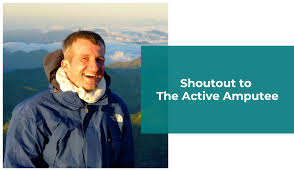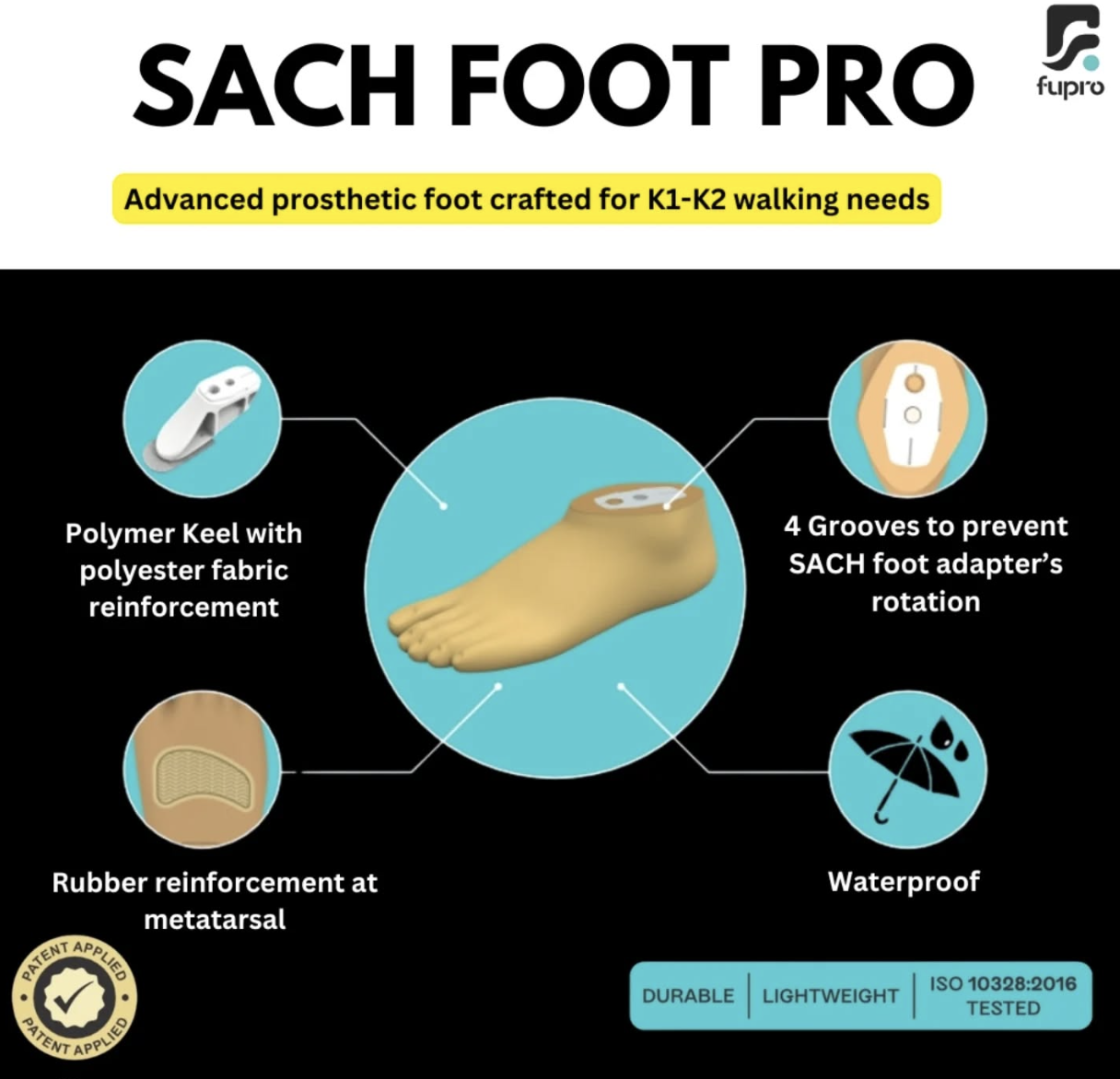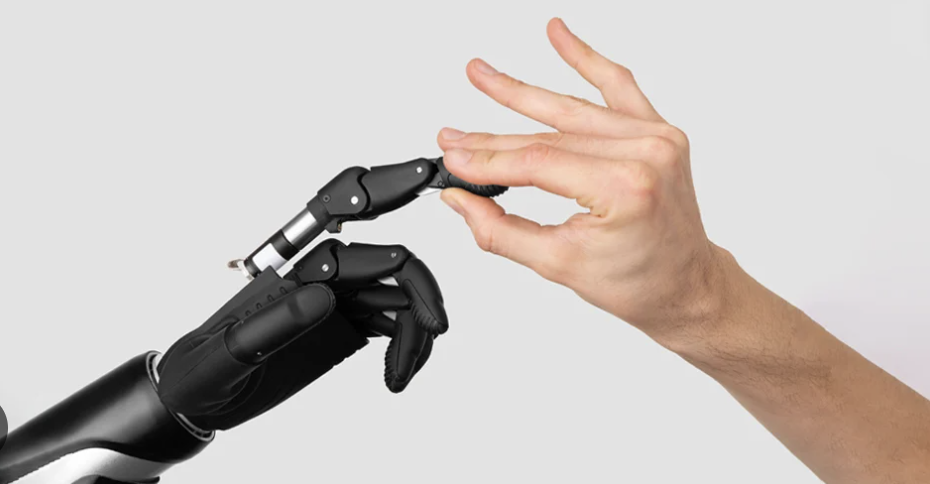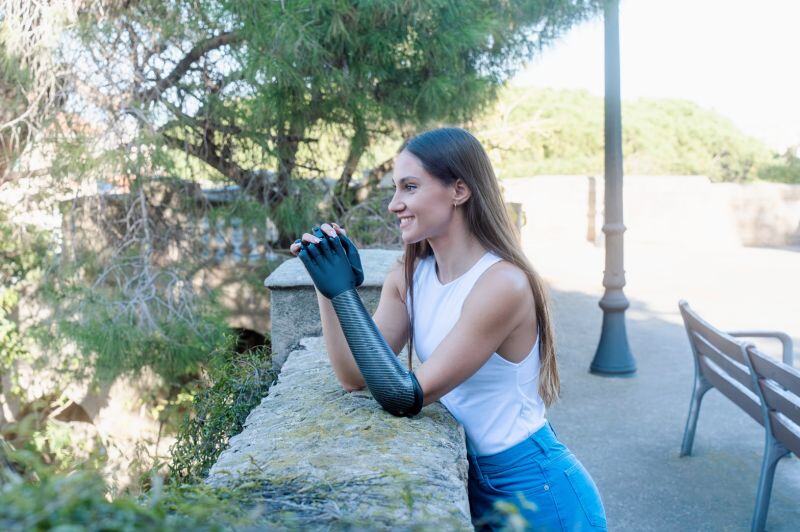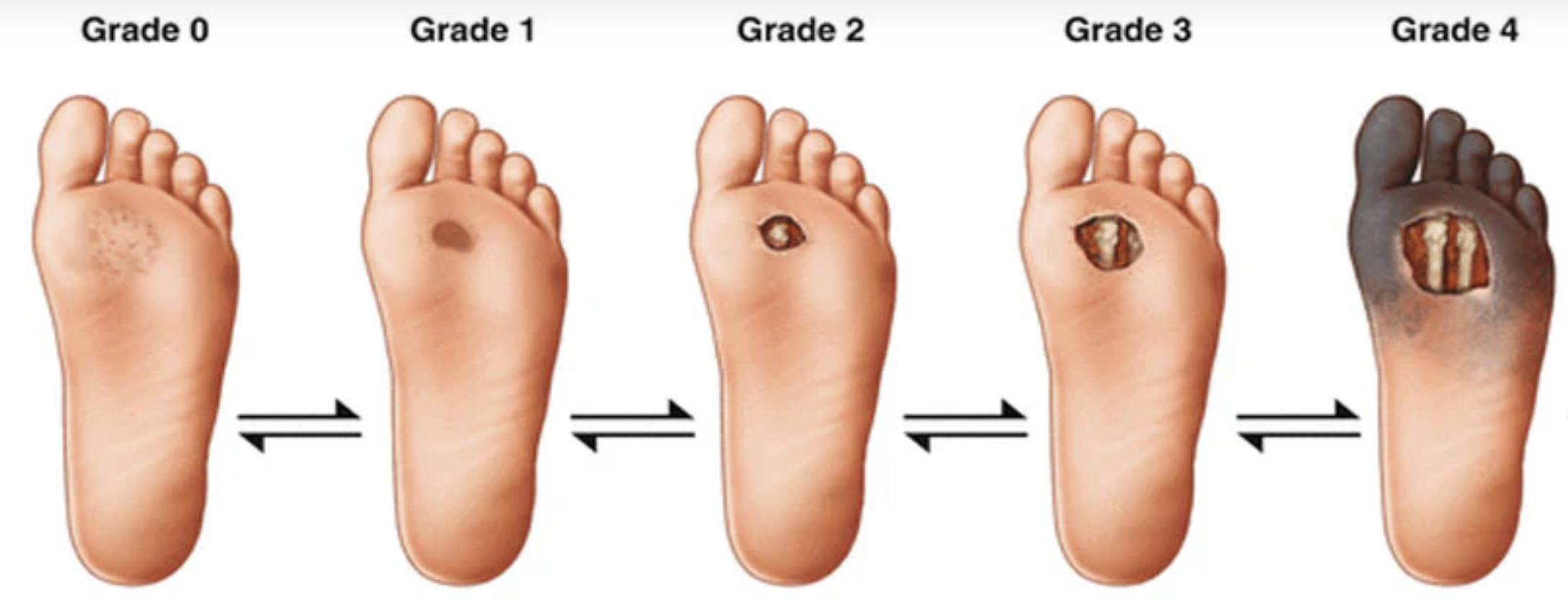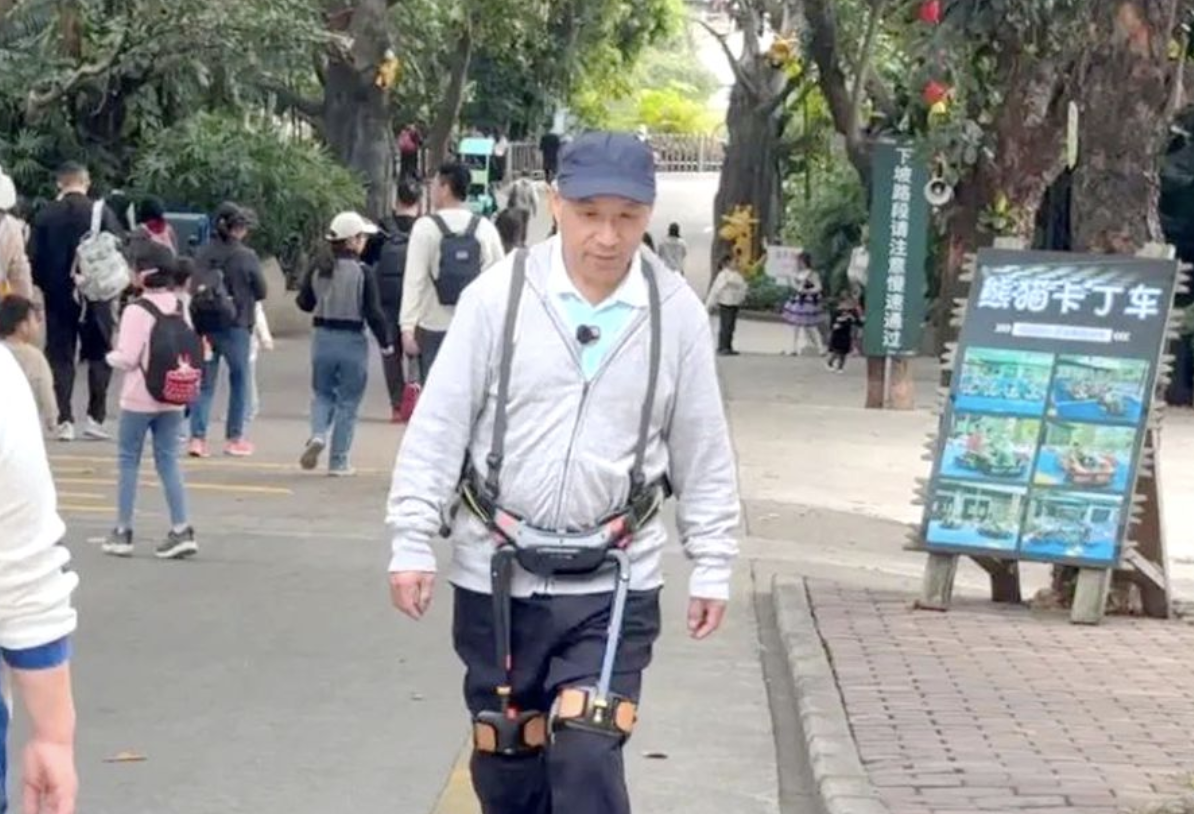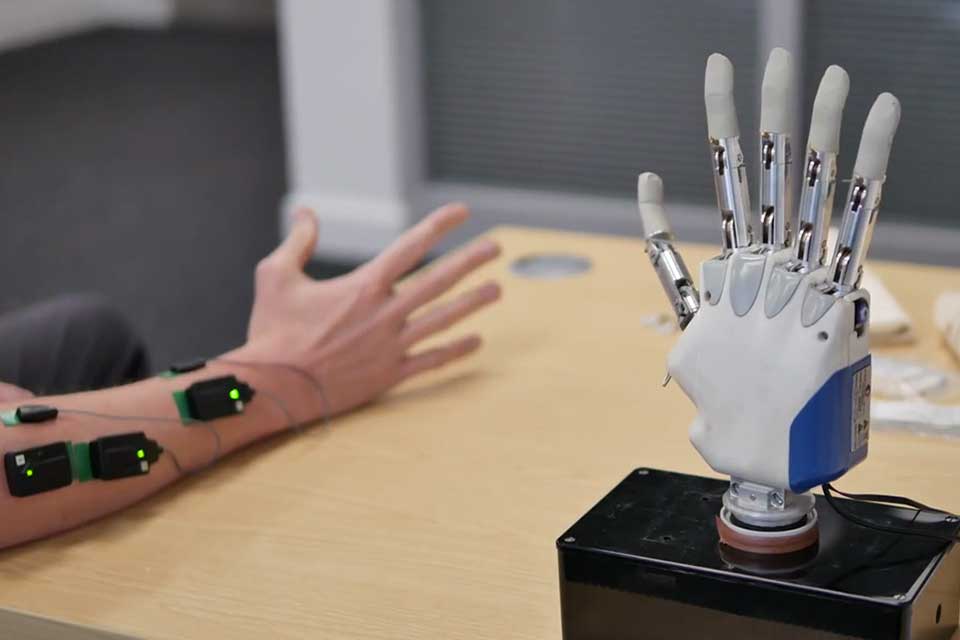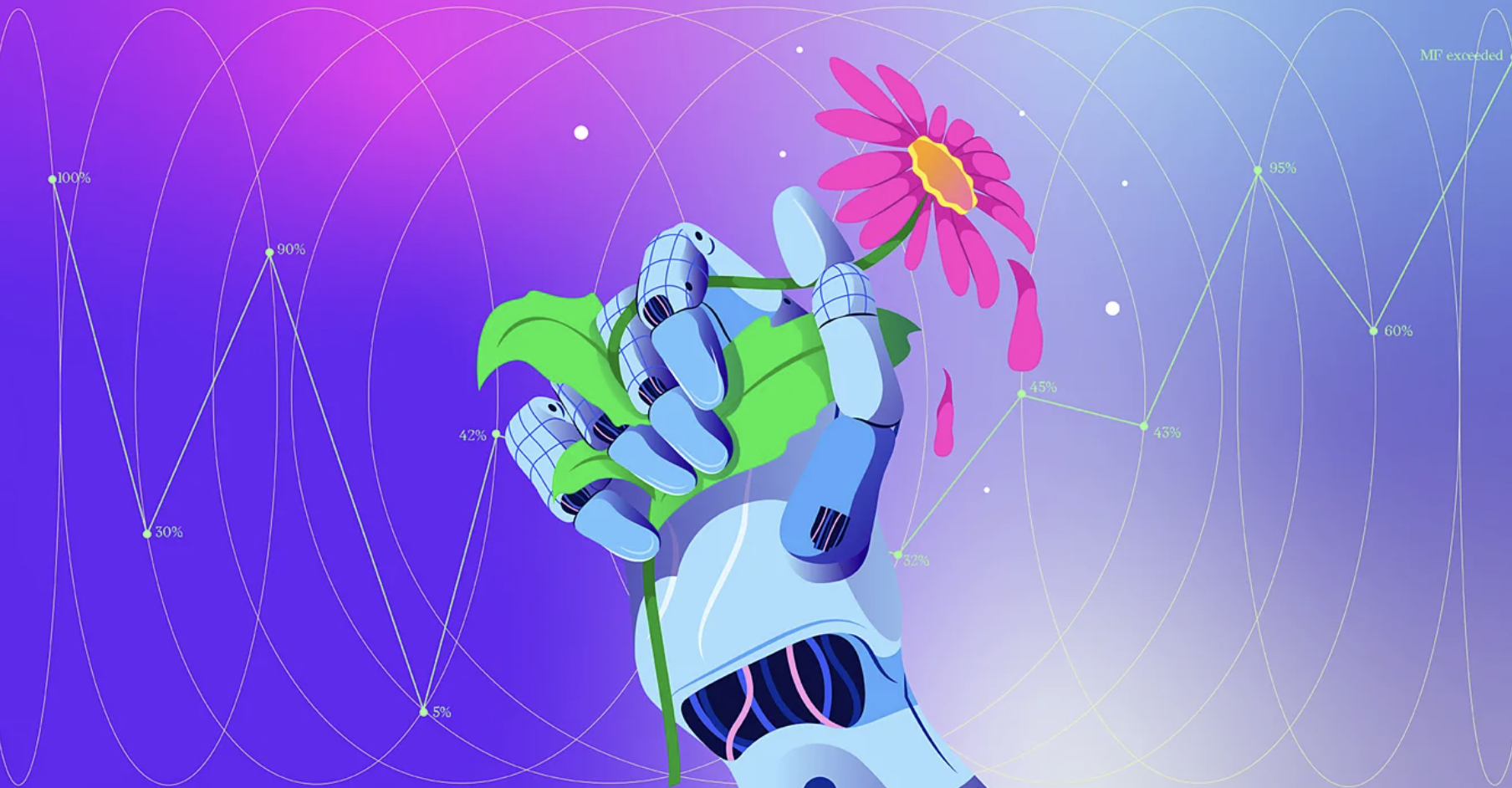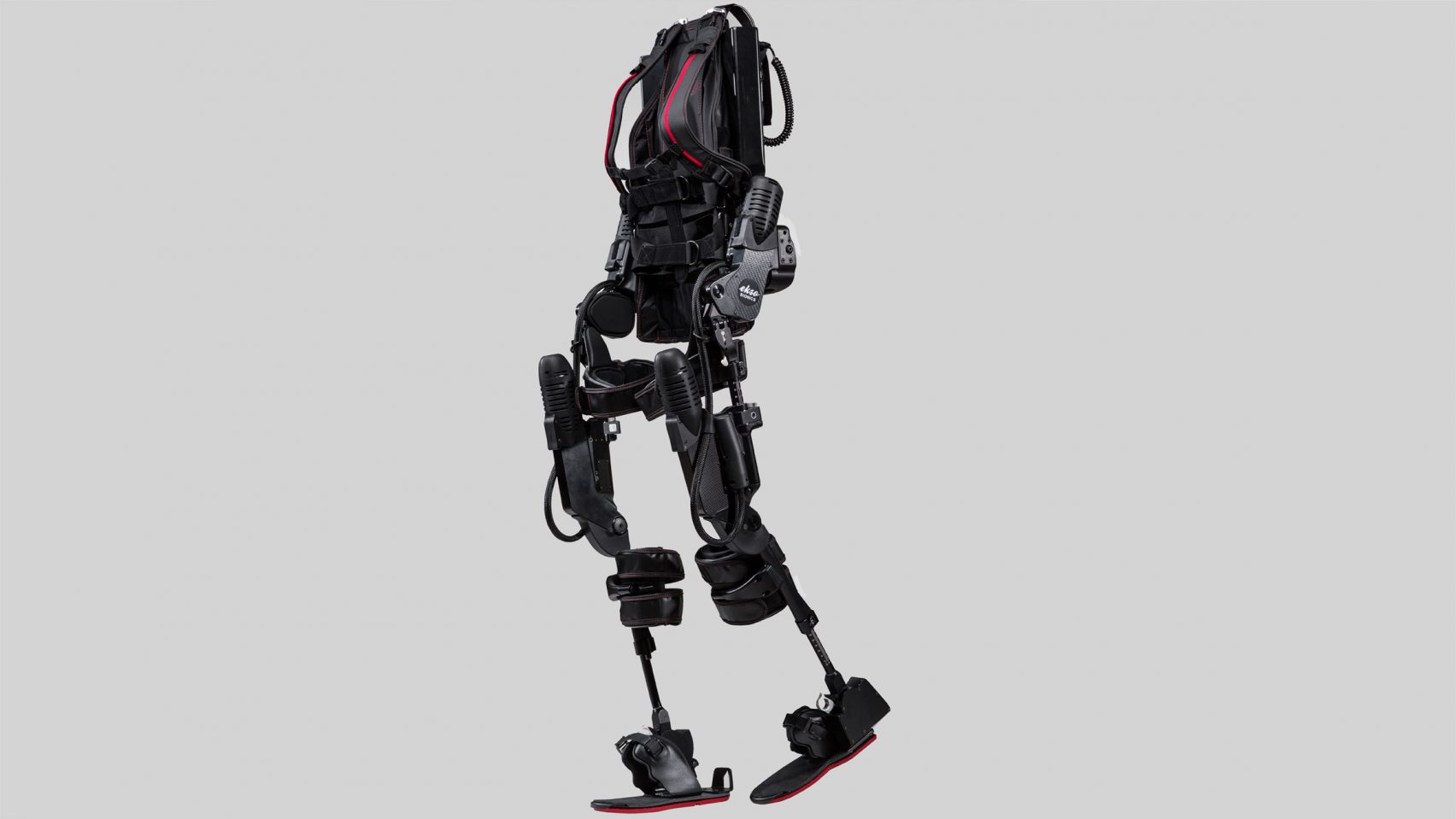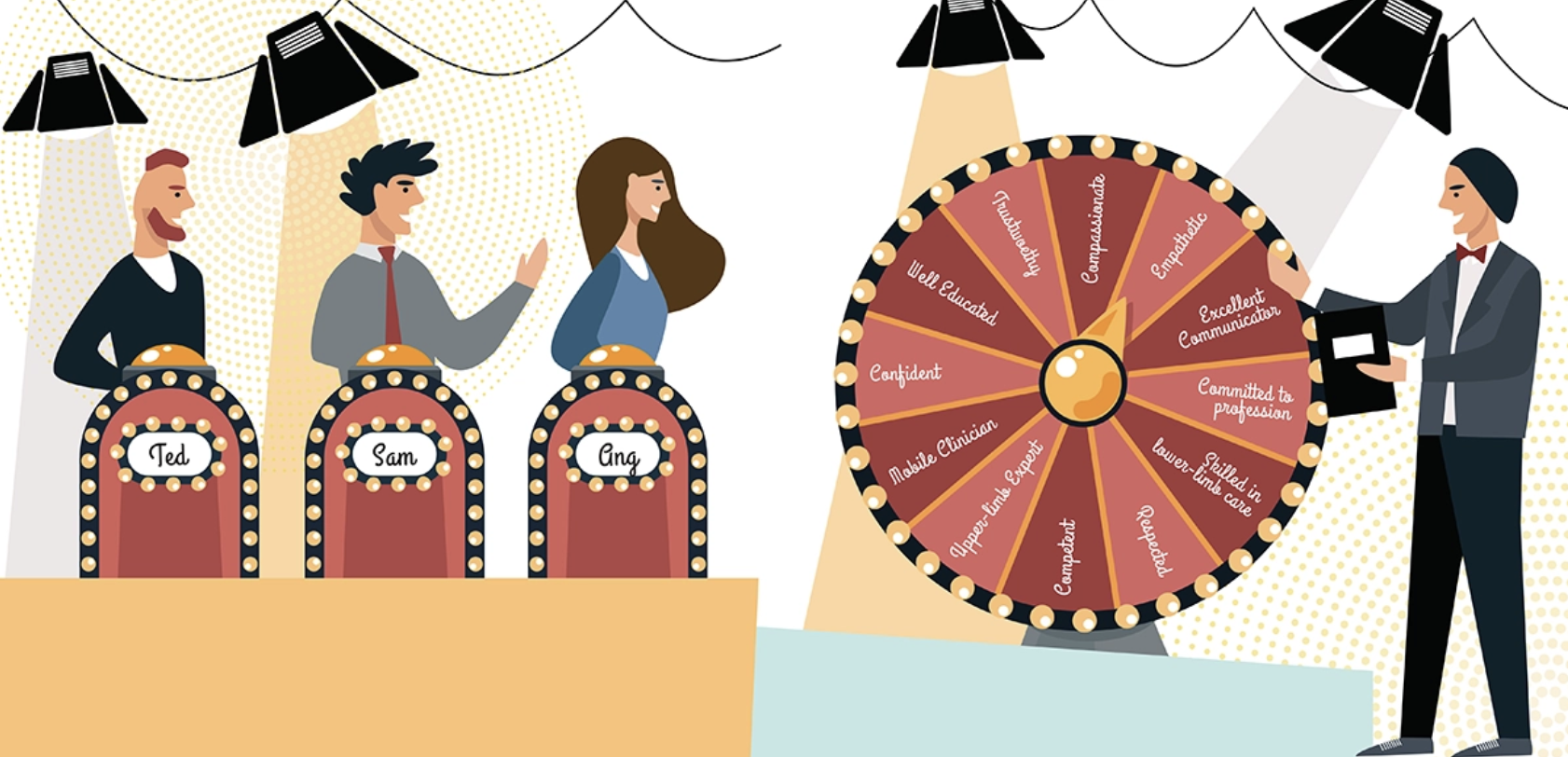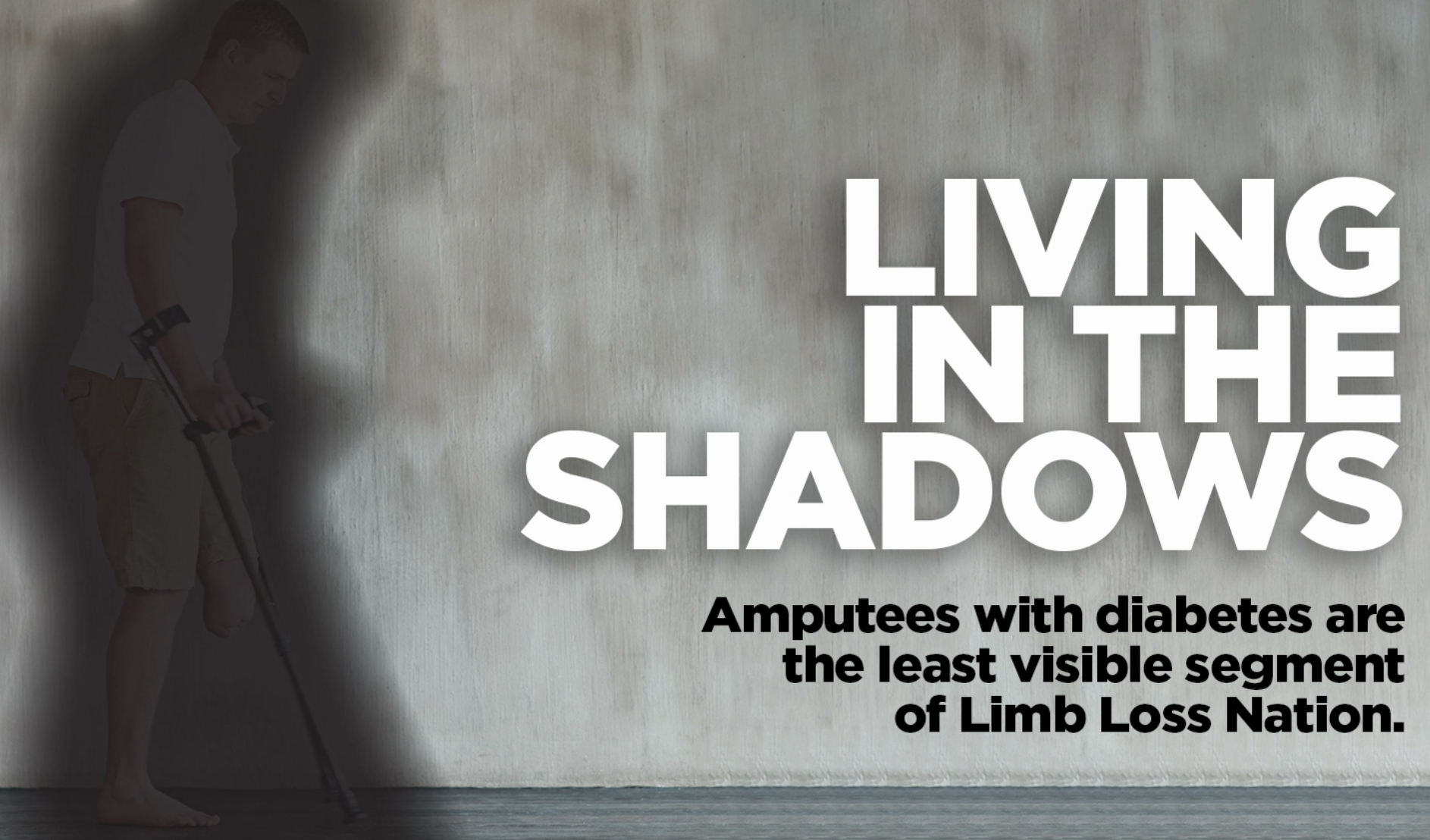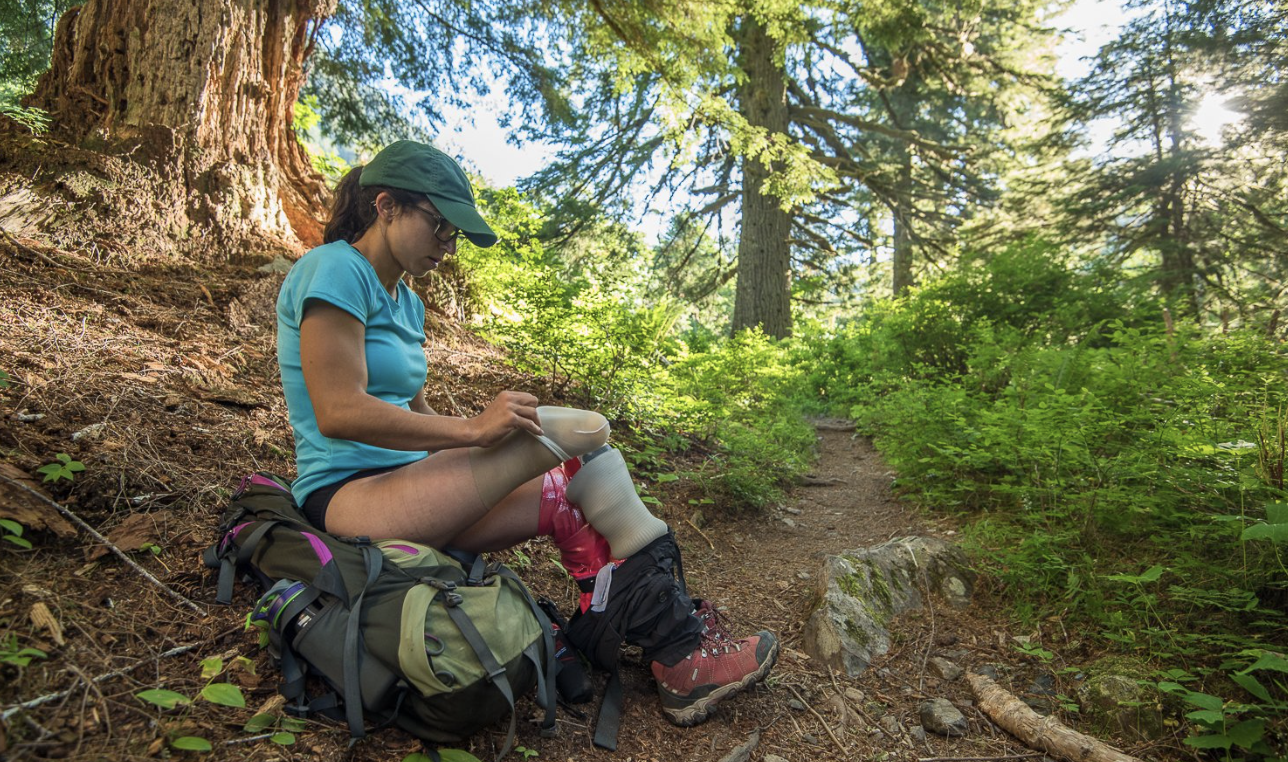I didn’t realize podcasts can do more than inform and entertain. Then I started a show for amputees.
by Rick Bontkowski
Just over two years ago, I found myself in a conversation with a friend from the recording industry. As we chatted about life, limb loss, and everything in between, my friend dropped a bombshell suggestion: “You should start a podcast for amputees.”
In response, I blurted out: “What’s a podcast?”
Cue the collective gasps and facepalms from everyone living in the 21st century. Little did I know that my comedically innocent question would serve as the prologue to a newfound role as the benevolent overlord of a digital media empire, reigning supreme over the amputee community’s electronic airwaves. Oh, the irony!
It wasn’t the first time my life had changed in the blink of an eye. One moment I was walking through the world whole, and the next I was facing a future I had never prepared for. Losing a limb is not a scenario most of us anticipate, but when it happens, it brings a seismic shift in identity and a whirlwind of uncertainties. Back then, I knew as much about limb loss as I knew about podcasts, and my questions about it were just as naive. The first thing I asked was: What does an amputee look like?
Cue the facepalms again.
That question sent me into the depths of Google. As I scoured the internet, I discovered not only what amputees look like but also how they evolve and grow. As I began redefining my very existence, these virtual landscapes offered solace and sanctuary, a vast expanse where faces, voices, and narratives intertwined. Within that unexpected and unexplored realm, my singular journey unfolded—an odyssey of self-discovery, resilience, and empowerment.
As a new amputee, my search for answers kicked off in the social media havens of Facebook, TikTok, and Instagram, where pixels painted portraits of resilience and fortitude. Scrolling through feeds became my daily ritual, as I soaked in the full spectrum of amputee experiences—a mosaic of triumphs and setbacks, victories and defeats. From prosthetic-powered marathons to hilarious memes, every shared story became a beacon of encouragement, inspiration, and hope. With every double-tap and comment, I felt like part of a vibrant community bound not by missing limbs but by the spirit to defy expectations and embrace life’s rollercoaster ride.
Yearning for more than just virtual connections, I took a leap of faith and reached out directly to some of my social media heroes. Among them was Jamie Gane, an adaptive athlete whose posts often delved into the intricacies of skincare—an area where I found myself struggling. With hesitant fingers, I typed out my inquiry, unsure if my voice would be lost amidst the digital cacophony. To my amazement, Gane responded promptly and with genuine care. In that moment, I felt validated, seen, and understood in a way I hadn’t before.
I found similar kinship with social media luminaries such as Cameron Clapp, a triple amputee and activist from California; Christina Stephens, aka Amputee OT, a public speaker and influencer; and Robert Anthony, an elite paratriathlete for Team USA. These high-profile amputees weren’t distant figures on a screen but approachable allies eager to support my quest for knowledge and understanding. Despite their diverse backgrounds and experiences, they shared a willingness to interact at a personal level. They weren’t just in it for the clicks; they really wanted to help people and make a difference. And their online lives weren’t illusions produced through crafty content curation. These were real people.
Fast-forward to 2022 and my innocent “What’s a podcast?” inquiry. Once my friend explained the medium to me, I realized it was the perfect way to share my one-on-one connections with social-media stars in a public forum. The generosity of these remarkable individuals wasn’t meant for private consumption. Their willingness to open up should be experienced by the entire limb-loss community.
The moment had arrived: the birth of my podcast, Amp’d Up211.
It felt like a daring mission. Why would well-known figures agree to speak with me, a fairly new amputee who was still pondering basic questions like “Who am I?” and who’d only recently learned about the existence of podcasting? My nerves rattled like loose screws as I drafted invitations to Gary Wieland, the amputee firefighter who reached the semis of American Ninja Warrior, and Tina Hurley, the indomitable force behind the nonprofit Less Leg More Heart. To my astonishment, they answered resoundingly in the affirmative. Encouraged by those successes, I decided to try a more direct approach, sliding into the DMs of Bachelorette heartthrob Cam Ayala and combat veteran Earl Granville. They both accepted my offer, too.
As the pieces of my podcast puzzle fell into place, a wave of excitement washed over me, mingled with a healthy dose of nerves. It dawned on me that I would soon find myself face-to-face (or rather, voice-to-voice) with these extraordinary individuals, tasked with the daunting yet exhilarating responsibility of interviewing them in an entertaining way. I plunged headfirst into research about the intricacies of each guest’s journey, meticulously crafting questions that went beyond the basic facts. To create an interesting podcast, I needed to draw out my subjects’ personalities and create a rapport that felt personal and relatable not just to me, but to my audience.
There was clearly a demand for this type of content, because when I posted teasers on social media, sparks of curiosity and anticipation began to fly. Before we even launched a single episode, my Facebook page and Instagram account began to swell with followers. But it wasn’t just the numbers that thrilled me—it was the sense of community that I saw taking shape.
The premiere episode of Amp’d Up211 aired in June 2022. Early guests included Stephens, Anthony, Gane, and other amazing amputees who’d responded to my questions during the early part of my own adaptation to limb loss. We delved into topics like navigating intimacy, the challenges of growing up with limb difference, and the transcendent highs and devastating lows of competing on the world stage as an adaptive athlete. As the audience began building, my inbox overflowed with suggestions for future episodes, along with comments and appreciative notes about the content we were producing.
Such words of validation helped me get through my growing pains as a podcaster. My producer, Brian, coached me through a lot of the technical details, but no amount of instruction could prepare me for the biggest challenge of all: watching myself on YouTube. Who was this doughy-faced, middle-aged dude staring back at me? I struggled to keep a straight face while grappling with the reality of my onscreen appearance. And there was one occasion where I couldn’t keep a straight face at all, thanks to a moment of accidental comic genius from Brian. To create a reference point for syncing video with audio, he asked that week’s guest to clap their hands—but the request caused great confusion, because the guest was an upper-limb amputee. After a moment of silence, we all cracked up.
But amid the sense of playful chaos, there were sobering reminders of why I’d started Amp’d Up211 in the first place: to create a welcoming space for amputees, while replicating on a mass scale the warm receptions I had received from quasi-famous amputees. One of the earliest hints of that mission came from a young mother named Tiffany, an avid listener whose world had been rocked when her son was badly injured in a lawnmower accident. The boy wound up with a partial foot on one leg and a below-knee amputation on the other. The immense burden of desperation, uncertainty, and fear rang out in Tiffany’s voice. She felt utterly lost. Acting on instinct, I offered to visit her and her son, drawn by a sense of duty and a desire to help in any way I could.
Suddenly, I found myself thrust into the role of advocate and guide—an ironic position for someone whose journey began with the question “What does an amputee look like?” Fortunately, I had developed the tools and experience to help Tiffany. One of Amp’d Up211’s first episodes featured Steve Chamberland, the ex-pro wrestler who founded a well-known charity called 50 Legs. I reached out to Samantha Eddington, a 50 Legs board member whose daughter had also been affected by a lawnmower accident. Together, we orchestrated a trip to Florida for Tiffany and her son, so he could receive the comprehensive care he desperately needed. In that transformative moment, I realized the podcast could be more than just a personal hobby or a platform to share uplifting stories. It could be a catalyst for change, a touchstone for people who felt isolated and unheard.
That issue came up in another form during an episode featuring AMP Camp founder Ben Lovell. He used a phrase I had never heard, “toxic positivity.” As Lovell explained, not all expressions of hope, optimism, and inspiration are helpful, even if they’re meant to be. For many amputees, the constant focus on feel-good stories can seem like a cruel judgment on their own struggles. I realized the podcast needed to venture into complex issues such as depression, social anxiety, thoughts of suicide, and addiction. Amputees grappled with these everyday difficulties, just like everyone else. These stories were as much a part of the limb-loss experience as resilience and triumph over adversity.
Listeners were incredibly moved when Kevan “Flea” Hueftle, a sprinter for Team USA, bared his soul on the podcast. After Hueftle lost his leg due to injuries he suffered in a hunting accident, alcohol became his sole refuge from the physical pain and emotional turmoil. His raw transparency added layers of relatability and authenticity, pushing back against the glossy facade that’s often showcased in mainstream entertainment, social media, and news coverage. Hueftle’s story put “positivity” in a more complex, more genuine light: We are all beautifully flawed individuals, navigating life with the cards we’ve been dealt, and meeting challenges as best we can.
That philosophy has become a cornerstone of the podcast. While the show still celebrates the accomplishments of amazing amputees, it also provides reassurance that it’s okay to have bad days, to struggle, and to seek help when needed. The emphasis has shifted toward embracing vulnerability and supporting each other through bad times as well as good ones.
What began as a quest for connection has blossomed into a journey of creation and advocacy. In some ways, this transition reflected a conscious choice—a desire to give voice to the voiceless. But in others, it was an inevitable evolution, spurred by listeners themselves. I’ve learned that social media has the ability not only to connect us but also to transform us. Amputees can learn so much from each other by tapping into our collective energy and knowledge. We are all integral parts of this ongoing conversation, each perspective deserving of acknowledgment and validation. As I continue to journey through this digital cosmos, I am filled with a profound sense of gratitude for the connections forged, the lessons learned, and the possibilities that lie ahead.
Program Notes
Looking for more amputee-oriented content to fill your AirPods? Here are four other shows about limb loss.
The Active Amputee
All the information you need for an active and rewarding life as an amputee.
Host: Bjorn Eser
theactiveamputee.org
